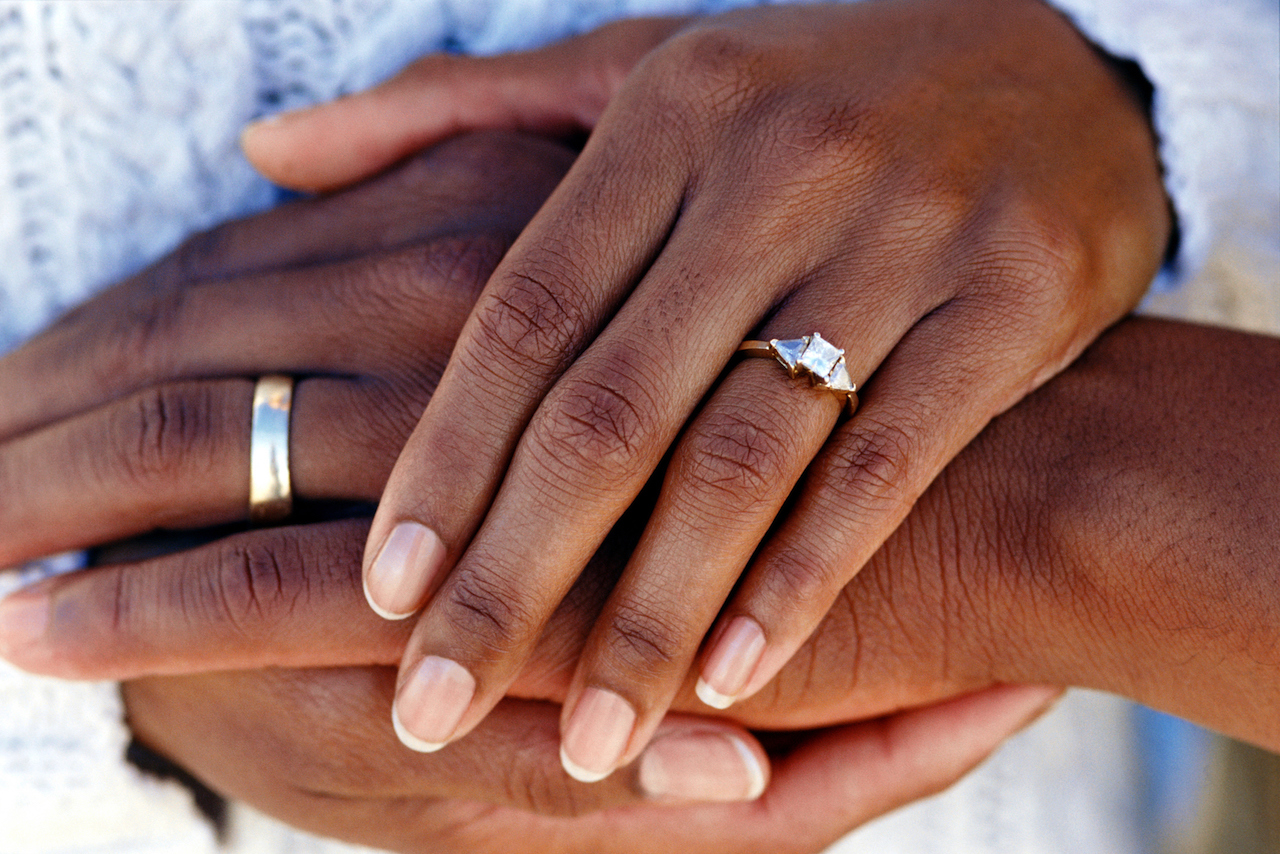To the Person Who Told My Husband to Divorce Me When I Had Postpartum Depression
I wrote my own vows when I married my husband, so although I didn’t exactly say, “in sickness and in health,” I meant it. When I chose to marry him, I didn’t mean I would only love him when he was at his best. I meant my love for him was unconditional. In return, I expected the same, but I didn’t realize I would be putting him to the test so soon after our marriage started.
You don’t know this, but my husband told me that you encouraged him to consult a divorce lawyer not long after my daughter was born. Lucky for me and my family, my husband never considered it, but knowing the conversation had taken place shattered me and reaffirmed my belief that I wasn’t worthy of love.
I was in such a vulnerable place at the time, and my husband was one of the only people who I allowed to support me during my postpartum depression and anxiety. To suggest that he leave me when I felt he was all I had seems to be the cruelest punishment. I have come to understand the issue with my postpartum depression in your eyes was that I wasn’t going about resolving it in the way you saw fit or in a way you understood. I was seeking help, but the results weren’t coming fast enough.
My postpartum depression and anxiety meant that I didn’t want visitors shortly after my daughter was born. It meant that I didn’t want to drive in the car with her to go anywhere other than the doctor’s office because hearing her scream in the car, which she did every time, made me want to pull my hair out. It meant that I really didn’t want other people to hold her. I was terrified of her getting sick because I knew I would never recover or forgive myself if anything happened to her. My postpartum anxiety meant that when my daughter’s reflux caused her to choke, I had no choice but to hold her all night on my chest where I knew she was safe. It meant that I wanted to crawl inside a cocoon and not come out until I was ready to face the world. I did the work, but I wanted to do it in peace and by myself. I didn’t want to expose myself to the looks of disapproval and the criticism and the “helpful advice.” The behaviors you saw as “weird” and “troubling” were my defense mechanisms, coping skills, and protective barriers.
These were all things no one understood. “Your daughter will be antisocial if you isolate yourself.” “But that’s what family does after a baby is born, they hold the baby.” “You can’t hold the baby all day long.” “It’s not good for the baby if you do this or the other thing.” In the confusion over my behavior, you probably saw a future that scared you. On some level, I get it. I wasn’t the person you wanted me to be in that moment, but I wish you had had more faith in me.
The problem was I was never given a chance to just be. We have this expectation that when someone is sick or doesn’t feel well, you go to the doctor, take the medication or have the surgery, and you are better. We rush the in-between part. Identify the problem and fix it. Don’t get caught up in the middle. The problem with thinking that way is that most of the journey is in the middle.
I was taking steps to feel better, but most of the time, I still didn’t feel great. I think that’s OK. I learned a lot during that time, and I have accepted it was a journey I needed to take. Worrying about whether or not your husband or family or friends will get tired of how long the journey to getting better takes you is not something people should have to worry about, but I know it is. I know because I lived it.
I think we need to do better as a culture and society. I think we need to allow people to struggle without putting our judgments and concerns on them. I think we need to learn how to be supportive in a way that allows another person to honor their struggle and what they are working with. I think we need to stop rushing to drop someone when they don’t live up to our expectations of them or what we hoped for their life. I think we need to learn how to love people at their weakest.
I have faith this can happen because despite all the pain I felt during that time, my husband was able to do all of those things for me and still does. I want his example of love to be the rule for everyone and not the exception. I want everyone to know what it feels like to be loved in the darkness and not just in the light. I want people to know they are worthy of being loved in every season of their life, in every condition and with any illness.
We are all worthy of love and understanding. I hope one day you agree with me.

